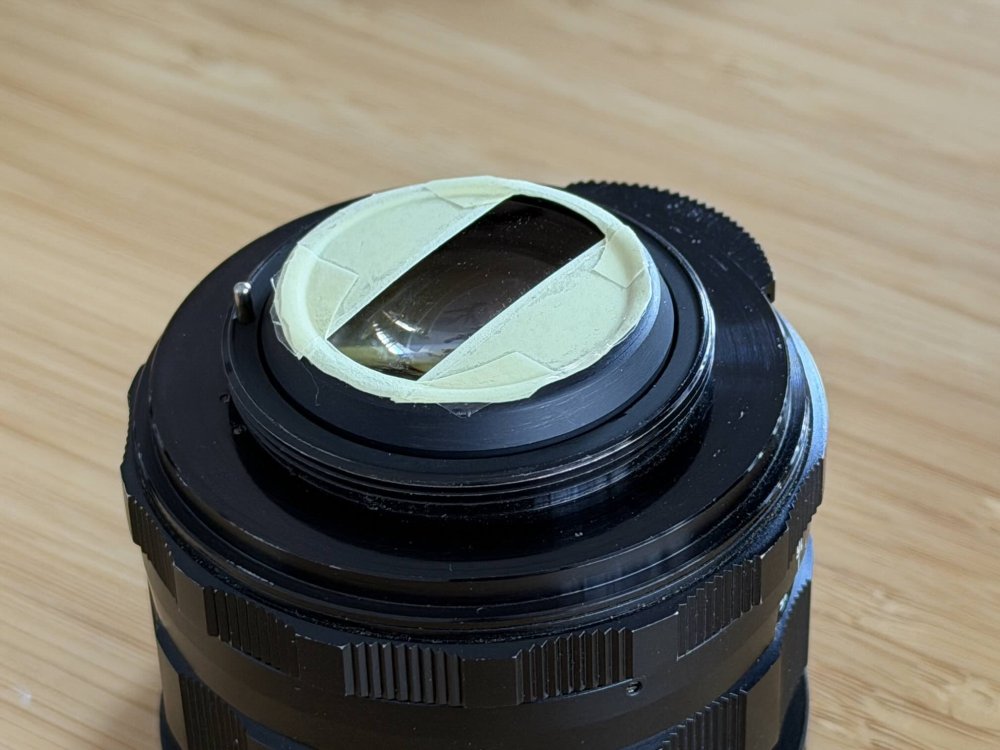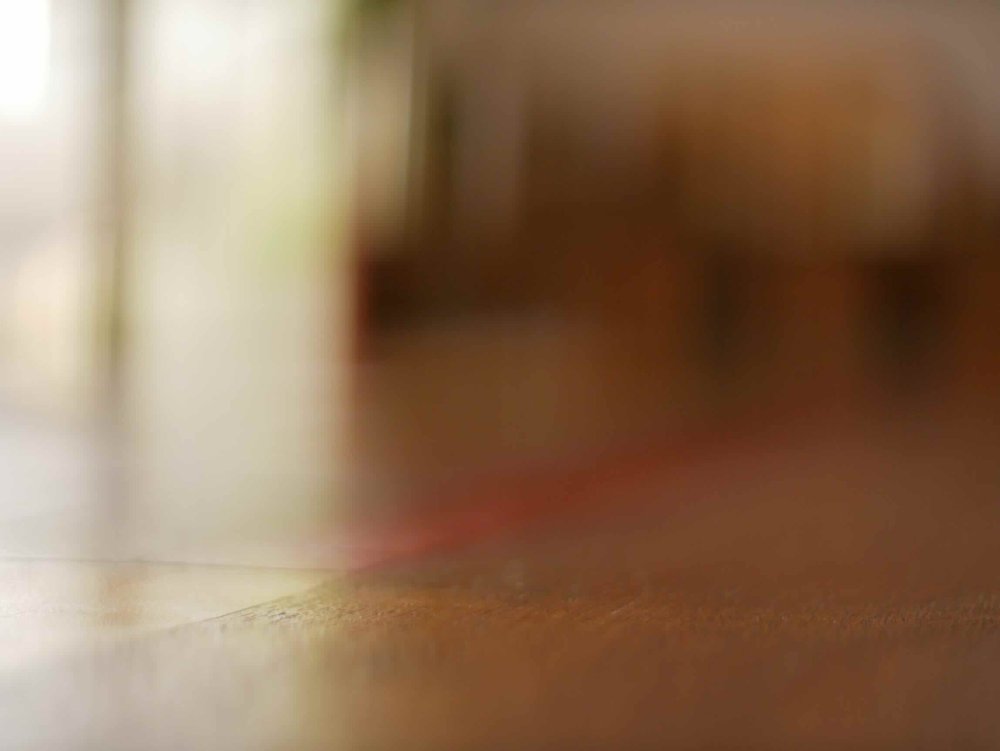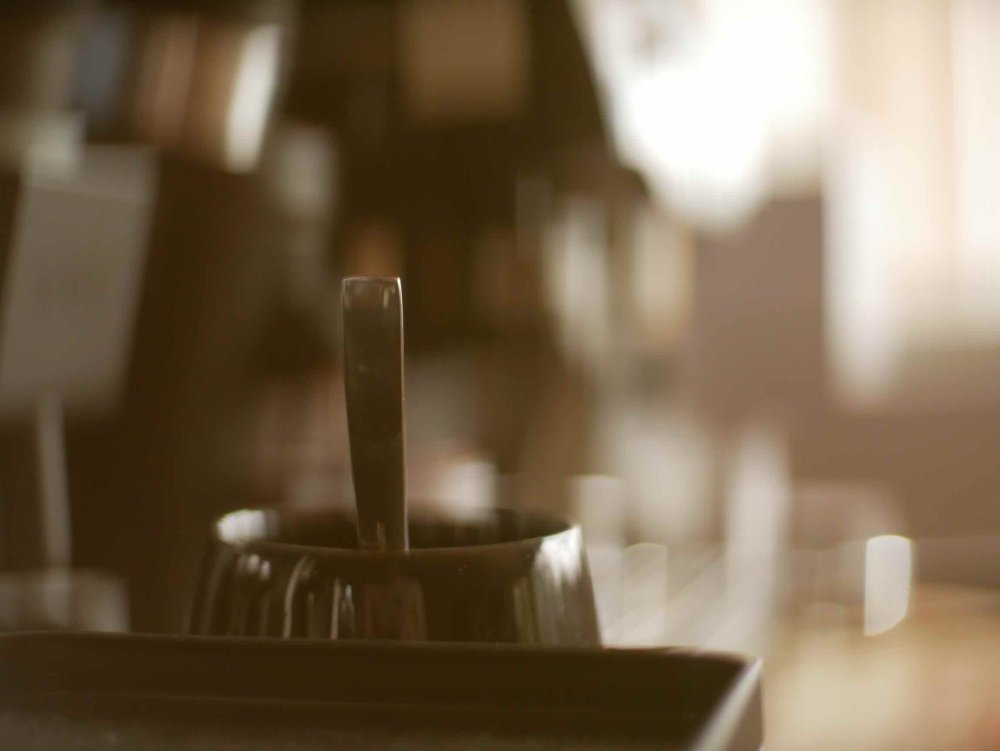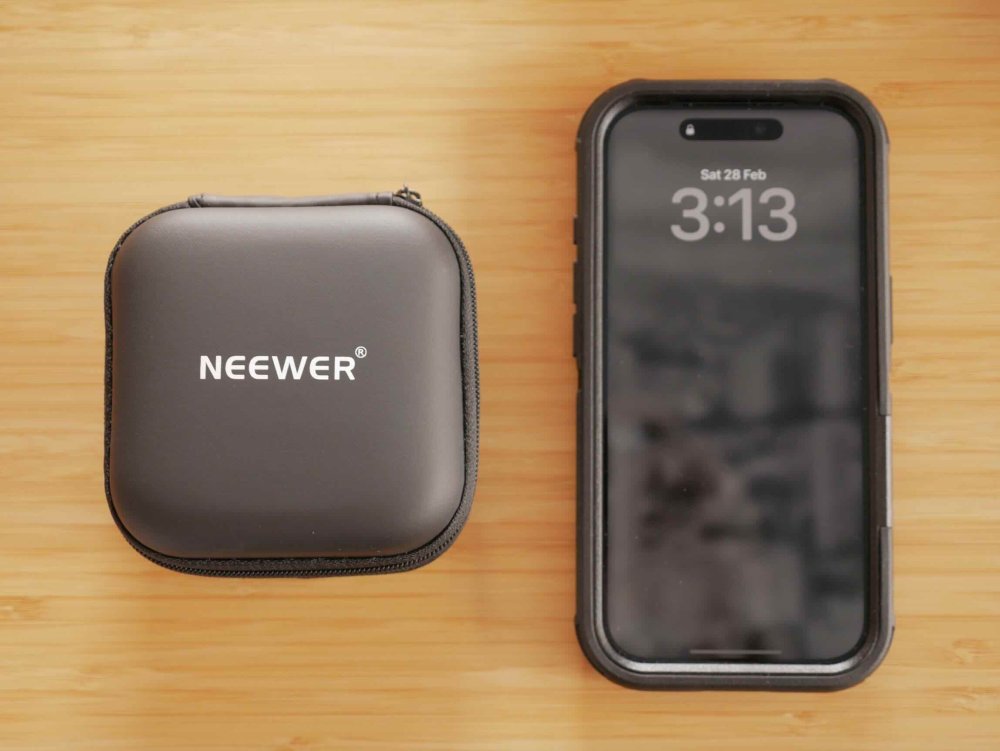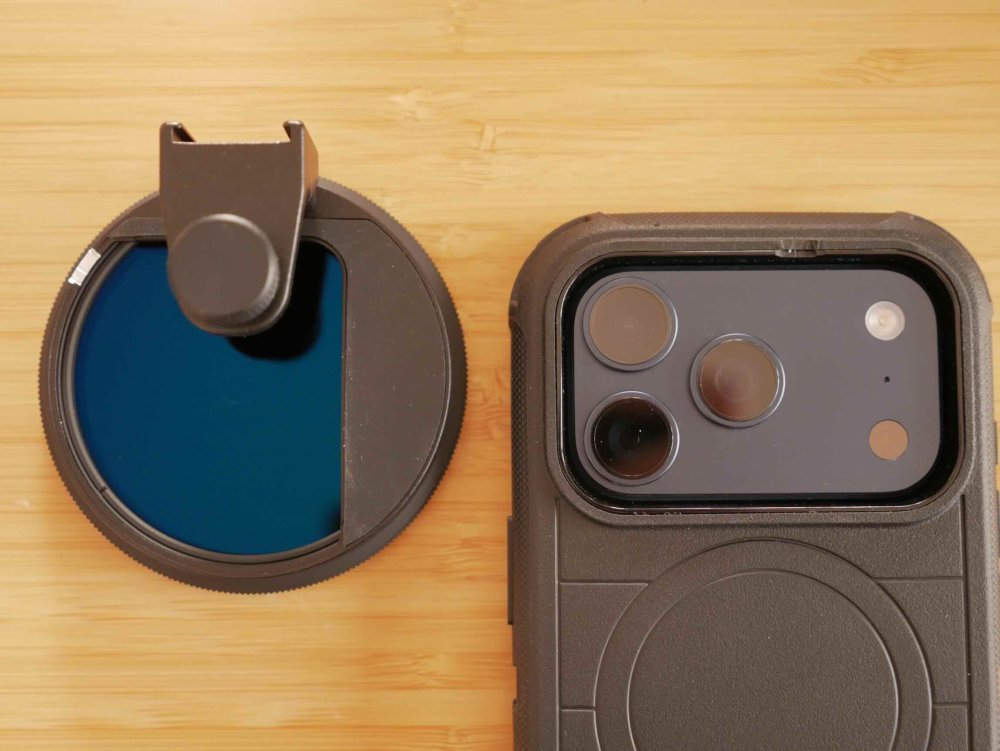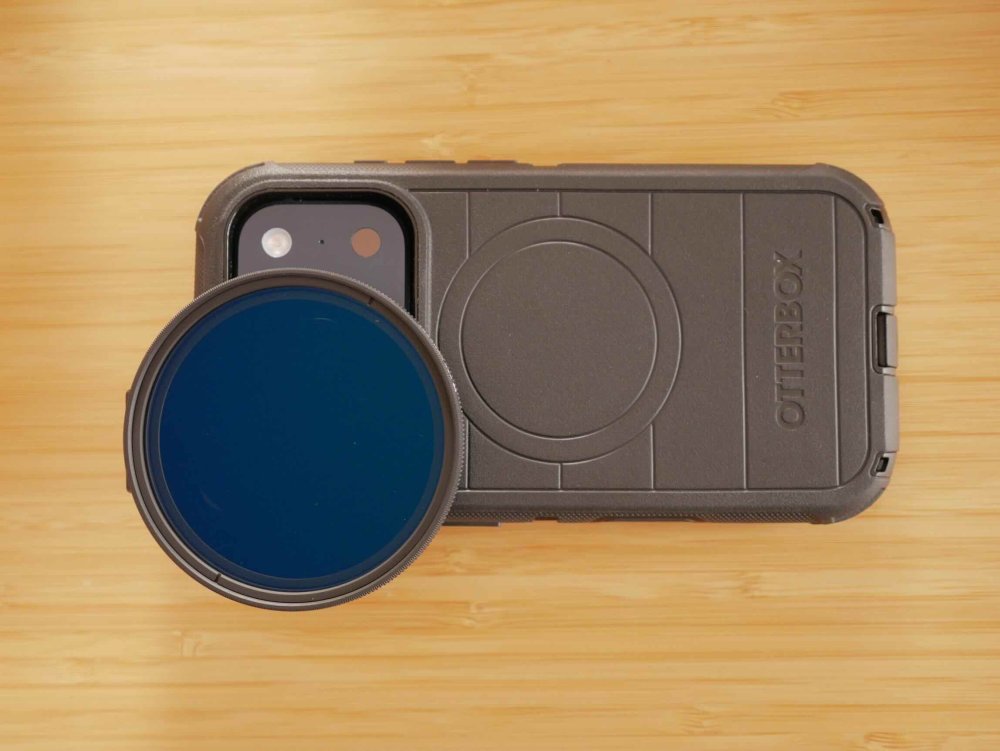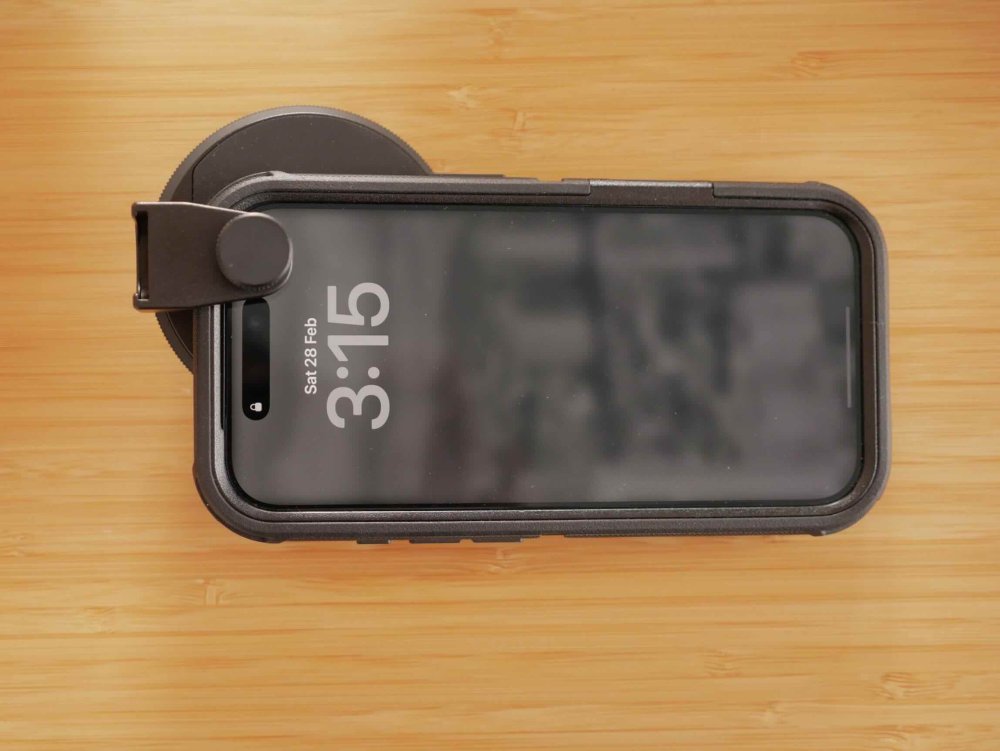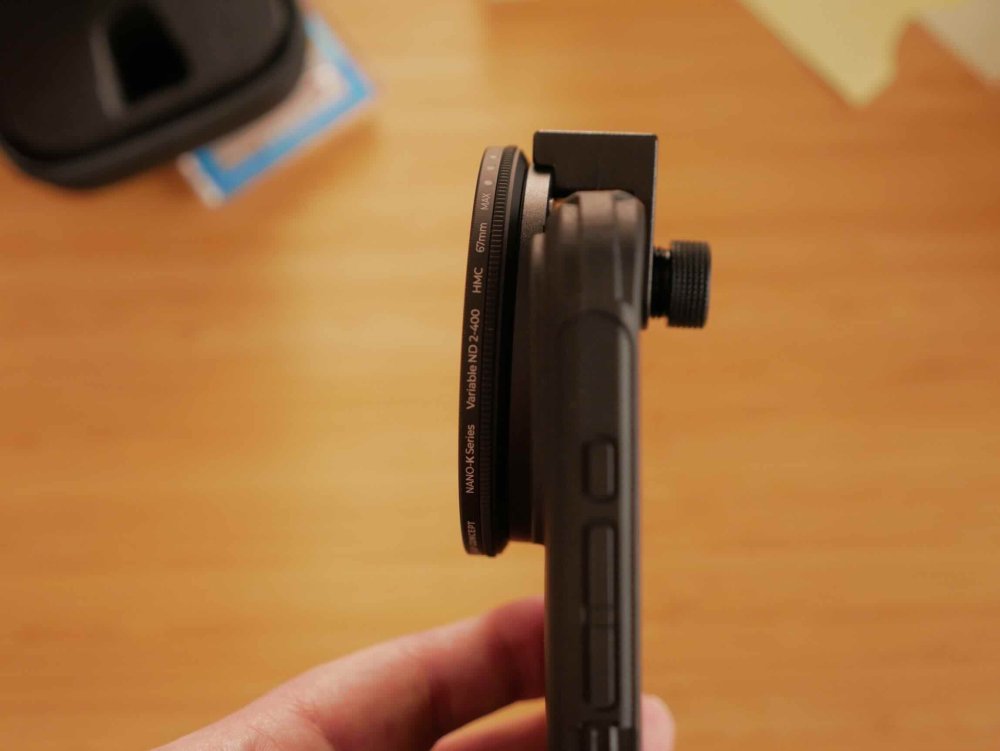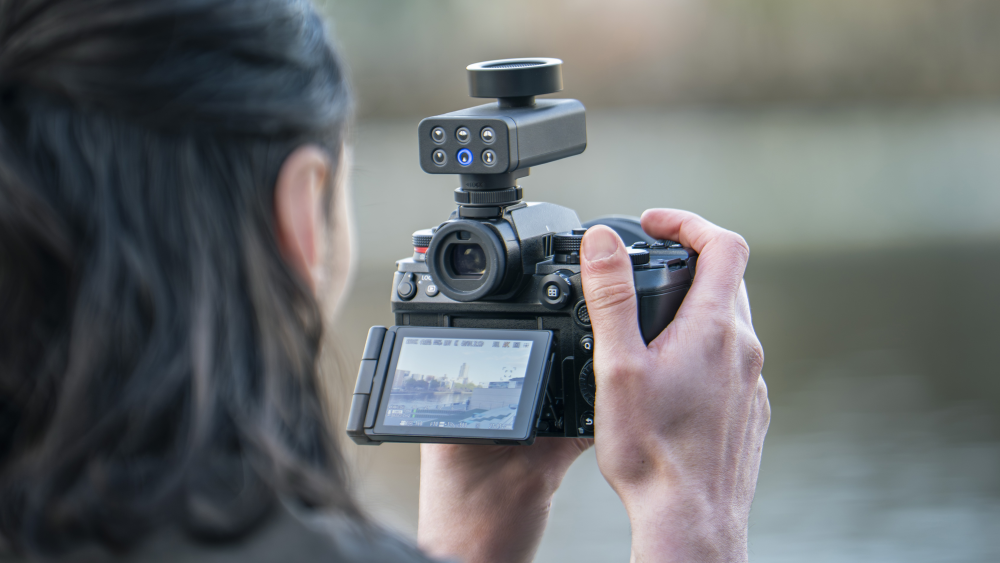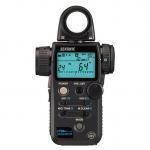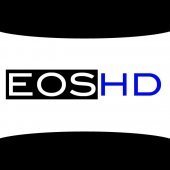All Activity
- Today
-
Mikhailbar joined the community
- Yesterday
-
These days, my travel setup looks a bit different, but with a similar goal of traveling light. I just bring the GFX 100 II and for lenses, the EF 35/1.4L II and the Fujinon 110/2. I used to bring the Fujinon 32-64/4 instead, but then I needed to bring something for lower light/night shooting. Plus a 2x zoom makes less sense when I can just crop anyway. I was looking at the GFX 100RF, but it's really not all that small and when I realized I was willing to accept a fixed 35 with that, I decided to just do the same thing, but, y'know, fast. For video, the GFX also makes it more like I have 4 lenses instead of 2. I can record in 4K or 5.8K at full sensor width - so effectively a 28mm or 80mm lens in FF terms - but if I switch to 8K, the crop is close to FF so I also have a 35 and 110mm lenses - with plenty of resolution to crop in if I want to. The fact that it's 8K is less interesting than it being a bit cropped. 😅 I don't really need to get all that wide so the 35 is usually enough, even if I crop in a little when IBIS darkens the corners a little. For photos, there's enough room to crop in that I can get reasonable results going anywhere from around 27-28mm on full frame to... something like 200-300mm after cropping. For ND filters, I just bring a set of Kase clip-in filters - ND8, ND64, and ND1000. The entire set fits in a tiny little box and weighs almost nothing. For a tripod, I... don't. The IBIS in the GFX is decent enough that I can get sharp photos handheld as long there's at least some light (if it's too dim for around 1/15second at f/1.4 at ISO 6400, that's rough - but it's just not a scenario I'm optimizing for these days). Limitations? Longer exposures for waterfalls are hit and miss. I usually just turn on the 2s timer at about a 1 second exposure and shoot it like 5 times and if I don't get something that's sharp with smooth water, I decide that wasn't meant to be. I have a lot of pictures of waterfalls already (I really like waterfalls). The camera and lenses are obtrusive - the GFX 100 II is smaller than my GFX 100 was and that's nice, but it's still not small. Rolling shutter in some modes is enough to be noticeable even with relatively small movement. The fact that it's obtrusive can be a really big problem - in a lot of cities, it's not a camera to casually hang around the neck and stroll around. I'm in Sao Paulo right now - there are only a few parts of the city where I'd even bring it out. BUT the good news is that my phone (iPhone 16 Pro) works absolutely fine in all of the places where I wouldn't take out my big obtrusive camera. The iPhone is good enough that I take out the big camera less and less, even when it would be totally safe to take it out.
-
My take: Panasonic’s Head of Imaging practices a rare art: saying almost nothing with exceptional stamina. The translator deserve a standing ovation for turning sprawling verbal marathons into neat, meaningful summaries. I read each phrase 3 times before moving on to the next.
-
This is awesome - thanks for sharing! What kind of DCTLs are you writing?
-
 kye reacted to a post in a topic:
I made a DCTL that brings Lightroom-style controls to Davinci Resolve
kye reacted to a post in a topic:
I made a DCTL that brings Lightroom-style controls to Davinci Resolve
- Last week
-
 John Matthews reacted to a post in a topic:
Panasonic on-camera mic released
John Matthews reacted to a post in a topic:
Panasonic on-camera mic released
-
 kye reacted to a post in a topic:
Panasonic on-camera mic released
kye reacted to a post in a topic:
Panasonic on-camera mic released
-
 kye reacted to a post in a topic:
Panasonic on-camera mic released
kye reacted to a post in a topic:
Panasonic on-camera mic released
-
 ac6000cw reacted to a post in a topic:
New travel film-making setup and pipeline - I feel like the tech has finally come of age
ac6000cw reacted to a post in a topic:
New travel film-making setup and pipeline - I feel like the tech has finally come of age
-
 Yannick Willox reacted to a post in a topic:
Panasonic on-camera mic released
Yannick Willox reacted to a post in a topic:
Panasonic on-camera mic released
-
This reminds me of using my old Sony camcorder with the 5.1 surround sound microphone. I would shoot with it, then in post be able to isolate each channel and choose which one to use and ignore the ones that were just location noise. Pretty handy without much effort when shooting. This might be similar in that sense.
-
 Alt Shoo reacted to a post in a topic:
Panasonic on-camera mic released
Alt Shoo reacted to a post in a topic:
Panasonic on-camera mic released
-
 ac6000cw reacted to a post in a topic:
Panasonic on-camera mic released
ac6000cw reacted to a post in a topic:
Panasonic on-camera mic released
-
 John Matthews reacted to a post in a topic:
New travel film-making setup and pipeline - I feel like the tech has finally come of age
John Matthews reacted to a post in a topic:
New travel film-making setup and pipeline - I feel like the tech has finally come of age
-
 eatstoomuchjam reacted to a post in a topic:
New travel film-making setup and pipeline - I feel like the tech has finally come of age
eatstoomuchjam reacted to a post in a topic:
New travel film-making setup and pipeline - I feel like the tech has finally come of age
-
Fair enough. I just wish they'd spent time and resources elsewhere. I want a small, up-to-date, Panasonic M43 camera, not an overly complex version of a on-camera mic. This seems like a great product for 2010. But what do I know, maybe this THE MIC, the one that everyone was waiting for. What I can tell you with 100% certainty, people are ready and willing to pay vast sums of money for old gear, only because it's small. What happened Panasonic? The whole miniaturization of components thing has been apparently disregarded.
-
Doh - forgot to list the 9mm F1.7 lens. That's the ultra-wide I'll be taking too. So the total count is one body, 5 lenses, my phone with vND. I was slightly conflicted about the "wide-angle night cinema" slot. The SB+50/1.4 is equivalent to a 71mm F2.0 on FF, so having something wider seems an obvious thing but I'm just not sure if I would use it. I've mentioned the 12-35mm F2.8 as my night walk-around lens, and when combined with the GH7 low-light capability it's a fine combination, but it's not crazy fast/bright and isn't the best "cinema" option around. The things I considered were: my TTartsans 17mm F1.4, which is small and light and despite being soft wide-open is probably quite cinematic my 14mm F2.5 which is small and light but is bettered by the 12-35mm on flexibility grounds being a zoom my Voigtlander 17.5mm F0.95, which is a great performer but is quite heavy my c-mount 12.5mm F1.9, which is similar FOV when you crop in to its S16 image circle my 9mm F1.7 combined with the GH7 cropping, which is fast but sacrifices resolution and doesn't have the DOF advantages of other options (although I am already taking it) SB + 28mm F2.8 combos, but it's hard to get a reasonable quality 28mm F2.8 in M42 mount and it's not that fast anyway I opted to take the 12-35mm (which I sort-of take as a backup lens to the 14-140mm zoom) but if I do end up wanting a wider fast lens for night cinema, I think I might just bite the bullet and get the PanaLeica 15mm F1.7 as it'll be light and have AF and be sharper than I could ever want. I looked at the reviews of a bunch of budget F1.4 or faster lenses around the 14-20mm mark but I'd never be sure if it was as sharp as I'd like, and spending money to get something that isn't that much faster than my 17/1.4 or that much lighter than my 17.5/0.95 seems silly. MFT is the wrong format for ultra-fast wide lenses, and I already have lots of options for something I might not use, so the whole thing might end up being academic anyway.
-
Getting prepped for my next trip and have further refined my setup. This trip is a quick trip to China, but it's also a test case for a trip I'm taking later in the year to Europe where the packing approach will be minimalism. Unlike the way I like to travel in Asia, the Europe trip will involve changing accommodation every few days, so packing and unpacking and hauling bags around will be much more of a pain, so I'll try and travel really minimally. As such, my approach for this trip is "when in doubt, don't take it" and see what I actually use. So the setup for this trip is: GH7 14-140mm F3.5-5.6 zoom, which I use during the day at F5.6 which means my 1-5 stop vND is enough 12-35mm F2.8 zoom, which is a great walk-around lens after dark Takumar 50mm F1.4 with M42-MFT Speedbooster (with bokeh insert) for "night cinema" iPhone 17 Pro setup (Neewer phone filter mount, K&F 1-9 stop vND, MagSafe Popsocket) The GH7 and zooms are self-explanatory, so here's the 50mm F1.4 setup. I have played around with "inserts" and ended up with a pretty extreme design, so this is a test to see if the vertical edges are too strong a look for me. It's made from the sticky part of the post-it note, and a layer of sticky tape over the top to keep it a bit more together. It sits between the speed booster and the lens, and I won't use the speed booster for any other lenses while travelling so this will stay in there and protected, so doesn't need to be that robust. It's a strong look in some situations and quite "painterly" in others, so I'll be curious how it goes. For my iPhone 17 Pro, it's a phone most of the time and a camera only as a backup, so I searched for a setup that would: Protect my phone from drops (I dropped it on the last trip and the screen shattered, despite it being in an Apple case - the only one available at the time... sigh) Still be right-sized for getting in and out of pockets etc Have a vND solution for when I want to shoot and use 180 shutter I'll spare everyone from the rant about the options out there (everyone wants you to buy into their "ecosystem" now) so I ended up with the Otterbox Defender Series Pro case, which makes the iPhone feel even larger than it did in the Apple case (which doesn't seem possible but is true), but seems very robust. The vND is the Neewer phone filter mount, which sort-of clips onto the phone (It's designed to screw onto and clamp the phone but you're clamping against the screen, so I wouldn't tighten it that much). It's designed for a naked iPhone, so I had to modify it (and the Otterbox case) slightly where it interfered with the Otterbox case to get it to sit a bit flatter. It still doesn't sit flush, but it goes on and seems to be fine. I haven't got around to actually taking it out to shoot with it, so that remains to be seen. I paired it with the K&F 1-9 stop vND, which boasts 18 layers etc, but doesn't claim to be a "True Colour" one like the 1-5 stop ones do. It doesn't have hard stops and I think it still gives the X at the max amount, but I'll see how I go. Not having an aperture sure sucks considering you're not really losing having shallow DOF. That is all combined with the MagSafe Popsocket as a safeguard. I've used the adhesive popsockets before and they're great for giving a much better grip on the phone, but I wasn't sure how strongly the MagSafe would be. The Otterbox claims to have magnets in it that strengthen the MagSafe connection, and this might be true. It feels quite sturdy actually, and I tested it to require 1.75kg of force to pull off, compared to the 1.45kg of force it took to pull it off my naked iPhone 12 mini. No idea what strength a naked iPhone 17 Pro MagSafe connection would have, but it's not terrible. Lots of compromises involved, but it's really my backup camera, and the Otterbox case is very grippy, so I'll see how I go.
-
Come on John... everyone knows that anyone who wants better footage than a smartphone can provide is 100% totally fine with a camera the size of a microwave oven that looks like a Borg prototype! Being slightly serious though, it's easy to criticise, but as someone who wants flexibility and better sound options, this is FAR better than the previous options, so it's a welcome addition in my eyes. The worst enemy of progress is criticising everything that isn't perfect in every conceivable way.
-
youshouldtry11 started following Why Sony are (now definitely) the new Canon
-
Why Sony are (now definitely) the new Canon
youshouldtry11 replied to Andrew - EOSHD's topic in Cameras
Womens In Your City - No Verify - Anonymous Sex Dating https://SecreLocal.com [url=https://SecreLocal.com] Girls From Your City [/url] - Anonymous Adult Dating - No Selfie New Girls [url=https://secrelocal.com/girl/ivanka-peach-vip-87.html]Ivanka Peach VIP[/url] [url=https://secrelocal.com/girl/paula-flores-10.html]Paula Flores[/url] [url=https://secrelocal.com/girl/luxury-girl-89.html]Luxury Girl[/url] [url=https://secrelocal.com/girl/mary-92.html]Mary[/url] [url=https://secrelocal.com/girl/kriss-kiss-66.html]Kriss Kiss[/url] [url=https://secrelocal.com/girl/solar-kate-70.html]Solar Kate[/url] [url=https://secrelocal.com/girl/emily-belmont-101.html]Emily Belmont[/url] -

All music at soundimage.org is now free for commercial use
Eric Matyas replied to Eric Matyas's topic in Cameras
Hi All, Here's a brand new free-to-use-with-attribution music track that I want to share with the community: "ARID ALIEN BADLANDS" (Looping) You can listen to it here: https://soundimage.org/wp-content/uploads/2026/02/Arid-Alien-Badlands.ogg And freely download it here: https://soundimage.org/sci-fi-14/ Just like my thousands of other music tracks and sounds, this track is 100% free to download and use in your projects with attribution. OTHER HELPFUL LINKS My Game Music Mega Pack (over 1400 tracks and growing) https://soundimage.org/ogg-game-music-mega-pack/ My Genre Music Packs: https://soundimage.org/ogg-music-packs-2/ Custom Work: https://soundimage.org/custom-work/ Support: https://soundimage.org/donate/ Enjoy, stay safe and keep being creative! 🙂 -
Lumix has involved themselves in gimmicks for some time now. Anyone remember OZO Audio on the G100? What about DFD Focus "technology"; and somehow, the Olympus cameras without PDAF (like the E-M10 iii, iv) did much better in CAF. At least this on-camera mic seems like an actual product, but I'm just not sure how useful it is since it's a rather large device taking up you hot shoe. I think I'll pass for that reason alone. Just give us 32bit with ANY mic internally, not a whole contraption on top.
-
sarah-mill joined the community
-
MostbetAz joined the community
-
Yes. This to me is just a somewhat expensive, limited use, vloggers device that has zero serious use case for my needs. I already have 2x Sennheisers that fill this role at €150 for the pair of them.
-
It's great they came out with something new, but I wish they'd spent their time elsewhere. This product just doesn't seem like a priority. If audio is the priority, I'd rather a set of 2+ wireless lav microphones that connect and record to the camera via bluetooth or wifi. Why hasn't anyone done that?
-
If it were half the price it'd be interesting but there if a lot of cheaper good gear out there. But it's good to see them innovating. I'm enjoying the S1mk2, I feel it's a big step up from the S5mk2. I hope it survives the summer! Panasonic now has quite comprehensive line up for all budgets.
-
Looked at and decided very quickly it isn’t for me, but good to see LUMIX making stuff they at least think folks want. What they really want however is an S1H mk II in an FX3 style body with the screen mech from the S1II and the screen from the ZR. Then they will truly win the crowd and strut like gods of low-mid film-making.
-
larryjohnson joined the community
-
Panasonic just released a new on-camera mic. Looks like an excellent option for events etc where you want something small or something really flexible. I've watched a few YT showcases and for me, the best features are: It gives you 32-bit without having to have the external mic preamp box (and then adding microphones to that, making it larger again) It's small, much smaller than an on-camera shotgun mic You can quickly swap between modes (I assume?) it's powered by the camera It unlocks the ability to record >2 channels of audio into the files (one person said you can record left/right/mono/mono-20dB as a combo, and left/right/left-20dB/right-20dB as a different combo) It's definitely not magic and the laws of physics still apply. There don't seem to be any really good on-location stress tests posted yet, but there's a few examples. Media Division did an in-kitchen test to compare it to in-camera mics and lav and a DJI clip-on, and also applied a bit of AI voice isolation too to see how far you can push it: Dustin did some good tests including walking a 360 around the camera in each mode, which showed how directional it is, which seems pretty impressive. He also compared it to the Sennheiser MKE440. This shows the different modes out in nature: This is probably a complete revolution for a number of niche uses. Content creators would be one, where they're recording in noisy environments but still staying relatively close to the camera where physics will be helping them. Another is where the flexibility really helps, like shooting events where getting pristine audio isn't an absolute must but working super-quickly is more important and perhaps the 32-bit would really come into its own. This reminds me of how people used to talk about Panasonic when the GH4 and GH5 were around and people were saying that Panasonic just listened to people and then implemented the features that people would use rather than trying to be flashy and grab headlines. This will be an invisible workhorse for lots and lots of people.
-
Yes, it is. In a single word: context. :- )
- Earlier
-
There was! Huge headlines back on August 6, 1945!
-
I thought there was some breaking news for a moment then!
-
Again, this is an intensely wrong justification. And there's not a single tool that was ever invented that some person didn't immediately start misusing. It only took from July to August for my own country to go from demonstrating nuclear fission to dropping a fission bomb on a city full of civilians. The perceived benefit of "now people don't have to pay artists to do work" is not really a benefit at all and the massive harm caused of "society can't function at all without a shared view of objective reality" is much, much worse. That's before we even mention the other harms being done in the forum of pollution, water use, higher energy bills, and higher costs for many products due to datacenters gobbling up all available storage and RAM. So again, it's not "just another tool" so much as it's an "existential crisis for humanity."
-
When setting up the ZR with the camera-specific Smallrig cage, there is space at the bottom of the cage to pull the battery and cards out, if needed. I think the ZR's main applications are not in large rigs but where the small form factor is advantageous. Hopefully Prores 422 LT will be suitable as a compromise format to make the camera more useful for those who cannot use the RAW formats. I personally like to shoot Prores 422 HQ 4K on the Z8 and although the files are huge they are not quite as huge as (with that camera) the N-RAW 8.2K, and I like having built-in lens corrections applied to the video file.
-
Hey all, quick follow-up after having purchased the C50 and using it couple days. The customization is seriously one of the best parts. I have EIS toggle, S&F, teleconverter, display brightness boost, view assist, WFM, false color all on physical buttons so they're instant. Then the touch quick cine menu overlay lets me flip through frame rates, codec, resolution and recording settings super fast without leaving shooting view. It just feels like one of the quickest cameras I've used in real life. Open gate 3:2 is still my absolute favorite thing. The aspect ratio looks fresh and having that extra vertical headroom for reframing or pulling stills is addictive. Being able to shoot 7K open gate in 10-bit h265 at only 486Mbps in the lowest bitrate is a great data rate to resolution ratio. The digital zoom via the rocker switches is the other standout. Light press for slow creep, hard press for fast punch, with separate speed curves for each. It's so tactile and controllable, and it makes punch-ins on primes feel intentional instead of a crop hack. The top handle is really cool too. It gives better balance and a two-handed grip so handheld shake is noticeably reduced, especially low angles or longer takes. But what's even cooler is how modular it is. Snap it off and the camera becomes super compact for travel, storage or quick discreet shots. Having the choice is great. Still working on stabilization. EIS helps when it's on, but you get that slight crop and occasional motion blur artifacts unless I crank shutter angle to 90° or 45° (which I do now). EIS is disabled in open gate 3:2 so those shots are raw shaky until post. Gyroflow should handle it but I'm still having trouble getting it to recognise the camera or lens. Anyone knows how to manually set it up? Any tricks for getting the gyro data to load properly? Still in early testing phase but overall the camera feels fast, intentional and pro in a way that keeps me shooting. Cheers!
-
HaroldClato joined the community
-
That’s a category error: the tool isn’t the harm, misuse is. You can’t break it. Go full Quijote aka Quixote (who is who? LOL Never mind X ) Much of this sounds like corporate self-preservation dressed up as principle. History has a name for that drift: corporatism. Well, something Europe flirted with in the 1930s ; ) It didn’t end well; Portugal even wore the label officially. We’ve seen where it leads. Who we claim to be is irrelevant; what we do is what makes us. We aren’t what we say we are. We’re defined by what our hands actually show. Or reveal. Identity is cheap. Deeds are the proof. Fear’s a bitch. - EAG
-
squink started following I made a DCTL that brings Lightroom-style controls to Davinci Resolve
-
Hi! I just stumbled upon this thread and thought I'd share an OKLab conversion DCTL I wrote about a year ago. It;s written as a header file to be included in any other DCTL you may need it for. It supports conversion from ACES, Davinci Wide and Rec.709/sRGB. OKLab_Transform.h: #line 2 #ifndef ENCODING_ENUMS_DEFINED_IN_UI enum Encoding { gAcc, gAcct, gDWI, gLIN, g709, gSRGB }; #endif #ifndef COLORSPACE_ENUMS_DEFINED_IN_UI enum ColorSpace { cACES0, cACES1, cDWG, c709 }; #endif // ============================================================= // Util // ============================================================= // ============================================================= __DEVICE__ float powCf(float base, float exp) { return _copysignf(_powf(_fabs(base), exp), base); } __DEVICE__ float3 VecMatMul3x3(const float3 m[3], float3 v) { float3 r; r.x = m[0].x * v.x + m[0].y * v.y + m[0].z * v.z; r.y = m[1].x * v.x + m[1].y * v.y + m[1].z * v.z; r.z = m[2].x * v.x + m[2].y * v.y + m[2].z * v.z; return r; } // ============================================================= // Matrices // ============================================================= // ============================================================= // These matrices are the concatenated forms of (colorspace -> XYZ -> OKlms) // or, XYZToLMS @ ColorspaceToXYZ and, XYZToColorspace @ LMSToXYZ // original matrices are included as comments at the bottom of this script // ACES (AP0) // ============================== __CONSTANT__ float3 mat_ACES0_LMS[3] = { {0.90454662f, 0.26349909f, -0.15602258f }, {0.35107161f, 0.6766934f, -0.03056591f }, {0.13684644f, 0.19250255f, 0.62038067f } }; __CONSTANT__ float3 mat_LMS_ACES0[3] = { {1.2881401f, -0.58554348f, 0.29511118f }, {-0.67171287f, 1.76268516f, -0.08208556f }, {-0.0757131f, -0.41779486f, 1.57228749f } }; // ACES (AP1) // ============================== __CONSTANT__ float3 mat_ACES1_LMS[3] = { {0.64173446f, 0.35314498f, 0.0171437f }, {0.27463463f, 0.63099904f, 0.09156544f }, {0.10036508f, 0.18723743f, 0.66212716f } }; __CONSTANT__ float3 mat_LMS_ACES1[3] = { {2.04479741f, -1.17697875f, 0.10982058f }, {-0.88115384f, 2.15979229f, -0.27586256f }, {-0.06077576f, -0.43234352f, 1.57164623f } }; // ITU BT.709 // ============================== __CONSTANT__ float3 mat_709_LMS[3] = { { 0.4122214708f, 0.5363325363f, 0.0514459929f }, { 0.2119034982f, 0.6806995451f, 0.1073969566f }, { 0.0883024619f, 0.2817188376f, 0.6299787005f } }; __CONSTANT__ float3 mat_LMS_709[3] = { { 4.0767416621f, -3.3077115913f, 0.2309699292f }, { -1.2684380046f, 2.6097574011f, -0.3413193965f }, { -0.0041960863f, -0.7034186147f, 1.7076147010f } }; // Davinci Wide // ============================== __CONSTANT__ float3 mat_DWG_LMS[3] = { { 0.68570951f, 0.45574409f, -0.14156279f }, { 0.27427422f, 0.81179945f, -0.08604675f }, { 0.04351009f, 0.15072461f, 0.80624495f } }; __CONSTANT__ float3 mat_LMS_DWG[3] = { { 1.8836253f, -1.09713301f, 0.21364045f }, { -0.63460063f, 1.57752473f, 0.05693684f }, { 0.01698397f, -0.23570436f, 1.21814431f } }; // OKLab <-> Cone Response // ============================== __CONSTANT__ float3 mat_LMS_LAB[3] = { { 0.2104542553f, 0.7936177850f, -0.0040720468f }, { 1.9779984951f, -2.4285922050f, 0.4505937099f }, { 0.0259040371f, 0.7827717662f, -0.8086757660f } }; __CONSTANT__ float3 mat_LAB_LMS[3] = { { 1.0f, 0.3963377774f, 0.2158037573f }, { 1.0f, -0.1055613458f, -0.0638541728f }, { 1.0f, -0.0894841775f, -1.2914855480f } }; // ============================================================= // Transfer Functions // ============================================================= // ============================================================= // ACEScc // ============================== __DEVICE__ float ACEScc_DecodeBase(float v, float a, float b, float upperClampThreshold, float lowerDecodeThreshold, float two_m16) { float out = v; if (v >= upperClampThreshold) out = 65504.0f; else if (v < lowerDecodeThreshold) out = (_exp2f(v * b - a) - two_m16) * 2.0f; else out = _exp2f(v * b - a); return out; } __DEVICE__ float3 ACEScc_Decode(float3 in) { const float two_m16 = _exp2f(-16.0f); const float a = 9.72f; const float b = 17.52f; const float lowerDecodeThreshold = (a - 15.0f) / b; const float upperClampThreshold = (_log2f(65504.0f) + a) / b; float3 out = in; out.x = ACEScc_DecodeBase(out.x, a, b, upperClampThreshold, lowerDecodeThreshold, two_m16); out.y = ACEScc_DecodeBase(out.y, a, b, upperClampThreshold, lowerDecodeThreshold, two_m16); out.z = ACEScc_DecodeBase(out.z, a, b, upperClampThreshold, lowerDecodeThreshold, two_m16); return out; } __DEVICE__ float ACEScc_EncodeBase(float v, float a, float b, float negConstant, float two_m15, float two_m16) { float out; if (v < 0.0f) out = negConstant; else if (v < two_m15) out = (_log2f(two_m16 + v * 0.5f) + a) / b; else out = (_log2f(v) + a) / b; return out; } __DEVICE__ float3 ACEScc_Encode(float3 in) { const float two_m16 = _exp2f(-16.0f); const float two_m15 = _exp2f(-15.0f); const float a = 9.72f; const float b = 17.52f; const float negConstant = (_log2f(two_m16) + a) / b; float3 out = in; out.x = ACEScc_EncodeBase(out.x, a, b, negConstant, two_m15, two_m16); out.y = ACEScc_EncodeBase(out.y, a, b, negConstant, two_m15, two_m16); out.z = ACEScc_EncodeBase(out.z, a, b, negConstant, two_m15, two_m16); return out; } // ACEScct // ============================== __DEVICE__ float3 ACEScct_Encode(float3 in) { const float a = 9.72f; const float b = 17.52f; const float X_BRK = 0.0078125f; const float A = 10.5402377416545f; const float B = 0.0729055341958355f; float3 out; out.x = (in.x <= X_BRK) ? (A * in.x + B) : ((_log2f(in.x) + a) / b); out.y = (in.y <= X_BRK) ? (A * in.y + B) : ((_log2f(in.y) + a) / b); out.z = (in.z <= X_BRK) ? (A * in.z + B) : ((_log2f(in.z) + a) / b); return out; } __DEVICE__ float3 ACEScct_Decode(float3 in) { const float a = 9.72f; const float b = 17.52f; const float Y_BRK = 0.155251141552511f; const float A = 10.5402377416545f; const float B = 0.0729055341958355f; float3 out = in; out.x = (in.x > Y_BRK) ? _exp2f(in.x * b - a) : ((in.x - B) / A); out.y = (in.y > Y_BRK) ? _exp2f(in.y * b - a) : ((in.y - B) / A); out.z = (in.z > Y_BRK) ? _exp2f(in.z * b - a) : ((in.z - B) / A); return out; } // Davinci Intermediate // ============================== __DEVICE__ float3 DWI_Decode(float3 in) { float3 out = in; float a = 0.0075; float b = 7.0; float c = 0.07329248; float m = 10.44426855; float log_cut = 0.02740668; out.x = in.x > log_cut ? powCf(2.0f, (in.x / c) - b) - a : in.x / m; out.y = in.y > log_cut ? powCf(2.0f, (in.y / c) - b) - a : in.y / m; out.z = in.z > log_cut ? powCf(2.0f, (in.z / c) - b) - a : in.z / m; return out; } __DEVICE__ float3 DWI_Encode(float3 in) { float3 out = in; float a = 0.0075; float b = 7.0; float c = 0.07329248; float m = 10.44426855; float lin_cut = 0.00262409; out.x = in.x > lin_cut ? (_log2f(in.x + a) + b) * c : in.x * m; out.y = in.y > lin_cut ? (_log2f(in.y + a) + b) * c : in.y * m; out.z = in.z > lin_cut ? (_log2f(in.z + a) + b) * c : in.z * m; return out; } // ITU BT.709 // ============================== __DEVICE__ float3 BT709_Decode(float3 in) { float3 out = in; out.x = out.x < 0.081f ? out.x / 4.5f : powCf((out.x + 0.099f) / 1.099f, 1.0f / 0.45f); out.y = out.y < 0.081f ? out.y / 4.5f : powCf((out.y + 0.099f) / 1.099f, 1.0f / 0.45f); out.z = out.z < 0.081f ? out.z / 4.5f : powCf((out.z + 0.099f) / 1.099f, 1.0f / 0.45f); return out; } __DEVICE__ float3 BT709_Encode(float3 in) { float3 out = in; out.x = out.x < 0.018 ? out.x * 4.5f : 1.099f * powCf(out.x, 0.45f) - 0.099f; out.y = out.y < 0.018 ? out.y * 4.5f : 1.099f * powCf(out.y, 0.45f) - 0.099f; out.z = out.z < 0.018 ? out.z * 4.5f : 1.099f * powCf(out.z, 0.45f) - 0.099f; return out; } // sRGB // ============================== __DEVICE__ float3 sRGB_Decode(float3 in) { float3 out = in; out.x = out.x < 0.04045 ? out.x / 12.92f : powCf((out.x + 0.055f) / 1.055f, 2.4f); out.y = out.y < 0.04045 ? out.y / 12.92f : powCf((out.y + 0.055f) / 1.055f, 2.4f); out.z = out.z < 0.04045 ? out.z / 12.92f : powCf((out.z + 0.055f) / 1.055f, 2.4f); return out; } __DEVICE__ float3 sRGB_Encode(float3 in) { float3 out = in; out.x = out.x < 0.0031308 ? out.x * 12.92f : 1.055f * powCf(out.x, 1.0f / 2.4f) - 0.055f; out.y = out.y < 0.0031308 ? out.y * 12.92f : 1.055f * powCf(out.y, 1.0f / 2.4f) - 0.055f; out.z = out.z < 0.0031308 ? out.z * 12.92f : 1.055f * powCf(out.z, 1.0f / 2.4f) - 0.055f; return out; } // ============================================================= // Convert // ============================================================= // ============================================================= __DEVICE__ float3 Decode(float3 in, int tFunction) { float3 out = in; switch (tFunction) { case gAcc: out = ACEScc_Decode(in); break; case gAcct: out = ACEScct_Decode(in); break; case gDWI: out = DWI_Decode(in); break; case g709: out = BT709_Decode(in); break; case gSRGB: out = sRGB_Decode(in); break; } return out; } __DEVICE__ float3 Encode(float3 in, int tFunction) { float3 out = in; switch (tFunction) { case gAcc: out = ACEScc_Encode(in); break; case gAcct: out = ACEScct_Encode(in); break; case gDWI: out = DWI_Encode(in); break; case g709: out = BT709_Encode(in); break; case gSRGB: out = sRGB_Encode(in); break; } return out; } __DEVICE__ float3 OKLab_OKLCh(float3 lab) { float C = _hypotf(lab.y, lab.z); float h = _atan2f(lab.z, lab.y); return make_float3(lab.x, C, h); } __DEVICE__ float3 OKLCh_OKLab(float3 lch) { float a = lch.y * cosf(lch.z); float b = lch.y * sinf(lch.z); return make_float3(lch.x, a, b); } __DEVICE__ float3 RGB_OKLab(float3 rgb, int colorspace) { const float3* mat; switch (colorspace) { case cACES0: mat = mat_ACES0_LMS; break; case cACES1: mat = mat_ACES1_LMS; break; case cDWG: mat = mat_DWG_LMS; break; case c709: mat = mat_709_LMS; break; } float3 lms = VecMatMul3x3(mat, rgb); float3 lms_; lms_.x = cbrt(lms.x); lms_.y = cbrt(lms.y); lms_.z = cbrt(lms.z); return VecMatMul3x3(mat_LMS_LAB, lms_); } __DEVICE__ float3 OKLab_RGB(float3 lab, int colorspace) { const float3* mat; switch (colorspace) { case cACES0: mat = mat_LMS_ACES0; break; case cACES1: mat = mat_LMS_ACES1; break; case cDWG: mat = mat_LMS_DWG; break; case c709: mat = mat_LMS_709; break; } float3 lms = VecMatMul3x3(mat_LAB_LMS, lab); lms.x = powCf(lms.x, 3.0f); lms.y = powCf(lms.y, 3.0f); lms.z = powCf(lms.z, 3.0f); return VecMatMul3x3(mat, lms); } __DEVICE__ float3 RGB_OkLCh(float3 rgb, int colorspace) { float3 lab = RGB_OKLab(rgb, colorspace); return OKLab_OKLCh(lab); } __DEVICE__ float3 OKLCh_RGB(float3 lch, int colorspace) { float3 lab = OKLCh_OKLab(lch); return OKLab_RGB(lab, colorspace); } // ============================================================= // Ref Matrices // ============================================================= // ============================================================= // DWG -> XYZ // 0.70062239, 0.14877482, 0.10105872 // 0.27411851, 0.87363190, -0.14775041 // -0.09896291, -0.13789533, 1.32591599 // XYZ -> DWG // 1.51667204, -0.28147805, -0.14696363 // -0.46491710, 1.25142378, 0.17488461 // 0.06484905, 0.10913934, 0.76141462 // 709 -> XYZ // 0.4123908, 0.35758434, 0.18048079 // 0.21263901, 0.71516868, 0.07219232 // 0.01933082, 0.11919478, 0.95053215 // XYZ -> 709 // 3.24096994, -1.53738318, -0.49861076 // -0.96924364, 1.8759675, 0.04155506 // 0.05563008, -0.20397696 , 1.05697151 // XYZ -> LMS // 0.8189330101, 0.3618667424, -0.1288597137 // 0.0329845436, 0.9293118715, 0.0361456387 // 0.0482003018, 0.2643662691, 0.6338517070 // LMS -> XYZ // 1.22701385, -0.55779998, 0.28125615 // -0.04058018, 1.11225687, -0.07167668 // -0.07638128, -0.42148198, 1.58616322 Using it another DCTL looks something like this: #line 2 #define ENCODING_ENUMS_DEFINED_IN_UI #define COLORSPACE_ENUMS_DEFINED_IN_UI #include "OKLab_Transforms.h" DEFINE_UI_PARAMS(p_InCSpace, Input Color Space, DCTLUI_COMBO_BOX, 2, {cACES0, cACES1, cDWG, c709}, {ACES (AP0), ACES (AP1), Davinci Wide Gamut, Rec.709 / sRGB / BT.1886}); DEFINE_UI_PARAMS(p_InGamma, Input Gamma, DCTLUI_COMBO_BOX, 2, {gAcc, gAcct, gDWI, gLIN, g709, gSRGB}, {ACEScc, ACEScct, Davinci Intermediate, Linear, Rec.709, sRGB}); __DEVICE__ float3 transform(int p_Width, int p_Height, int p_X, int p_Y, float p_R, float p_G, float p_B) { float3 in = make_float3(p_R, p_G, p_B); float3 out = in; // Convert to OKLCh: float3 linear = Decode(in, p_InGamma); float3 oklch = RGB_OkLCh(linear, p_InCSpace); // Convert back: linear = OKLCh_RGB(oklch, p_InCSpace); out = Encode(linear, p_InGamma); return out; }
-
squink joined the community
-
The smug "it's just another tool" takes are, without a doubt, the most offensively stupid ones. Yes, ignore the huge amount of societal harm that is inflicted by a tool that lets any jackass instantly create a nearly perfect deepfake of any other person on the planet, right down to their voice and manner of speaking, and it is indeed "just a tool." While we're at it, let's just give the average person access to thermonuclear bombs which are, of course, "basically just another weapon" and "only bad if someone blows them up ."



